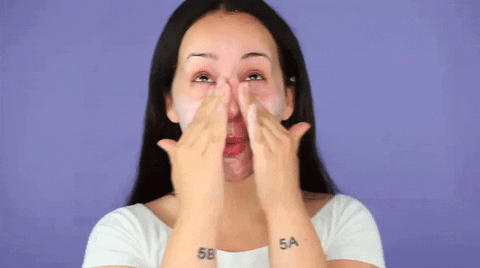Body Butters Vs Lotions




- Skin Concern or Problem Area
- What time of the year it is
- What feel do you prefer
What's your skin type and main skin concerns?
Body butters are packed with heavier moisturizers and therefore tend to provide a more intense dose of hydration. These are great for those who are prone to dry skin or anyone who is dealing with dehydrated skin or rough patches. These decadent formulas are great for richly replenishing the skin's moisture levels in rapid time.
For those with oily skin, body butter may leave a greasy feel on the skin. For this skin type, a water or aloe-based moisturizer like body lotion will likely be a better fit. The lightweight, super breathable texture of body lotion is also usually better for those who are prone to body breakouts.
For those looking to boost elasticity in their skin (mature skin types, pregnant people looking to minimize stretch marks, etc.), body butter may be a good go-to as the formulas tend to be higher in elasticity-boosting ingredients like fatty acids.
What time of year is it?
The cold, dry air of the winter months is known to zap moisture from the skin, leaving it feeling drier and dehydrated. During this time, you may find that you need to apply body butter on a daily basis to keep the skin barrier healthy and moisturized.
In the warmer months, when humidity is higher and temperatures are more moderate, your skin is often able to retain more moisture naturally. Because of that, it may not need as rich of a formula. During these seasons, a body lotion will likely be a better choice for daily use.
What type of feel do you prefer?
If you have normal skin that's not particularly dry or oily, you may find that you can use either formula regularly to hydrate your skin. If this is the case, it may ultimately come down to what type of feel you prefer.
Body butter is richer and tends to leave a silky feel on the skin. Because they're designed to provide intense hydration and create a protective barrier, they can also take longer to absorb. Like night creams, body butters can be great to use before bed to boost the skin's moisture levels while it's in recovery mode overnight. If you prefer a body lotion that doesn't leave any sort of distinct feel on the skin, a body lotion will be the better choice. Because these are typically formulated with ingredients like water, aloe, and glycerin, they are fast-absorbing for a daily dose of hydration that also feels weightless. Similar to lightweight day creams for the face, body lotion can be a great choice to use in the morning when you need to moisturize and head out the door. No need to wait for the formula to soak in with this type of moisturizer.

If you are still trying to figure out which of the two options works best for you, test out a couple of each. Maybe there’s one butter you’ll find that you don’t mind using and you can use once a week. You could also possibly find a lotion that feels thick enough to use instead of butter. As a rule of thumb, lotions usually work well on oily areas of the skin and body butter works best on dry areas of the skin. Lotions lubricate and quickly soften the skin. While body butter will stay on the skin longer, helping to prevent loss of moisture and deeply moisturize overtime. So, you will likely find yourself using both! As we are often made up of a mix of dry and oily areas.
